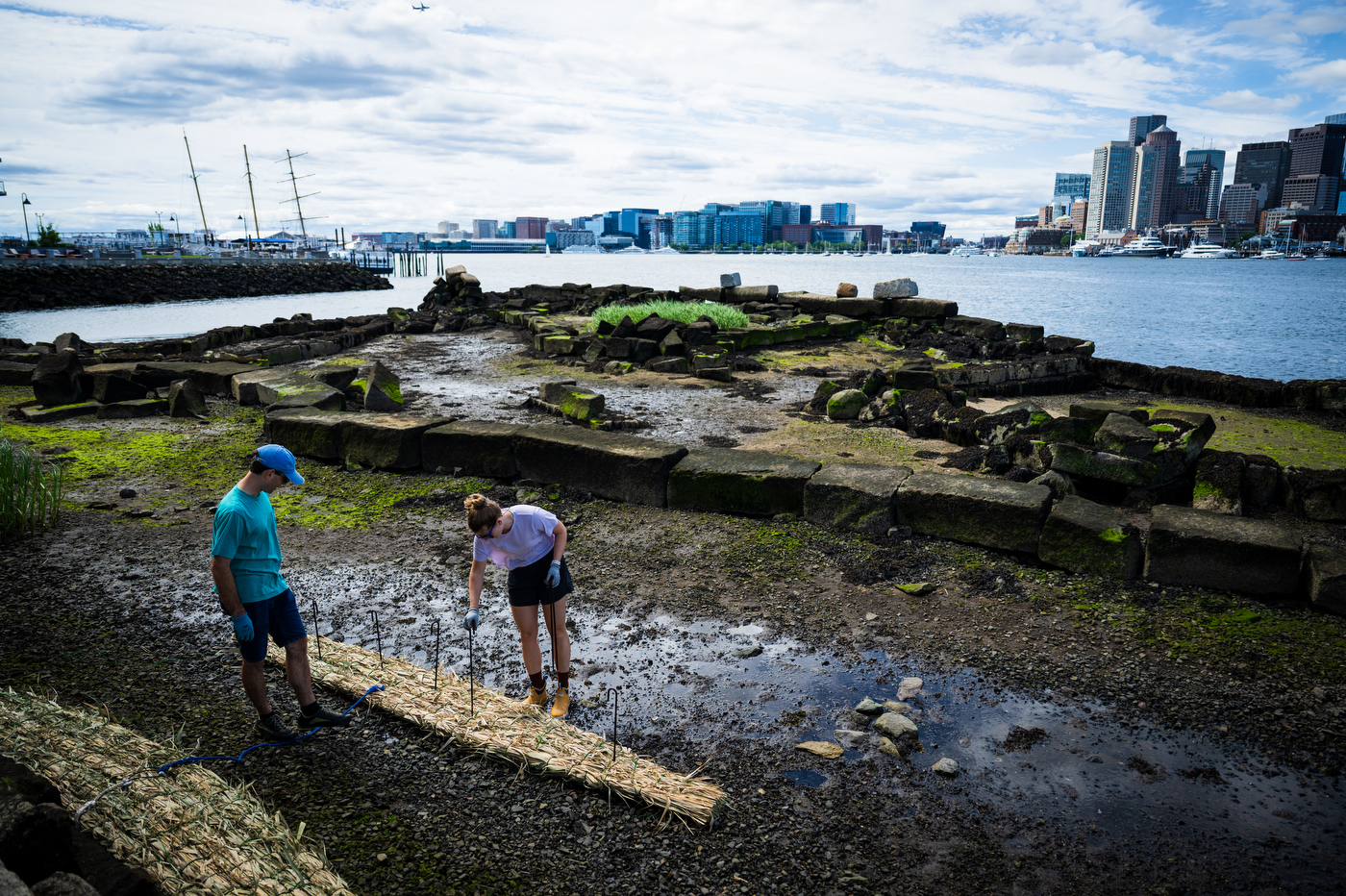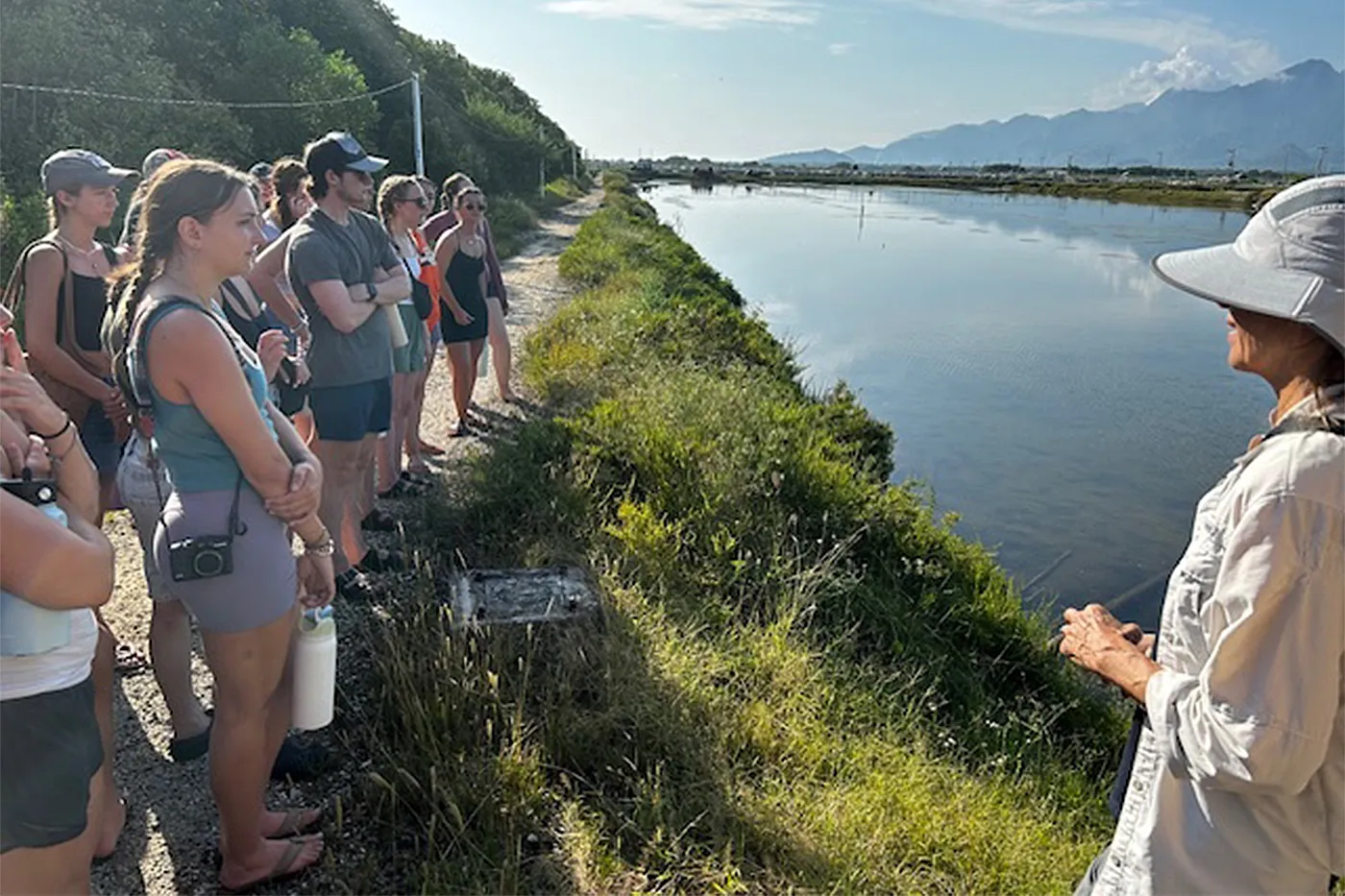COS News
News

A new report from a group of Northeastern researchers explores across disciplines how biotech can ensure safe, sustainable life beyond Earth.
The key to international space cooperation is developments in biotechnology, Northeastern researchers say
News

The NeuroPRISM lab, led by assistant psychology professor Stephanie Noble, makes tools that pave the way for reliable and reproducible neuroimaging of the brain.
Precise maps of the brain’s deepest corners are made possible through tools developed by these Northeastern researchers
Showing 192 results in Marine and Environmental Sciences

The key to international space cooperation is developments in biotechnology, Northeastern researchers say
A new report from a group of Northeastern researchers explores across disciplines how biotech can ensure safe, sustainable life beyond Earth.

Meet Neptune, the rare blue lobster donated to Northeastern’s Marine Science Center in Nahant
Research suggests only one in two million lobsters is blue, like this rare animal caught by a lobster boat captain and donated to Northeastern.

Using invasive wetland grasses, Northeastern grads adopt a green approach to stop erosion
Kayla Sklar and Anja Clark, Northeastern alumni, work with Emerald Tutu lead Gabriel Cira to grow native wetlands grasses on beds formed from invasive species.

In Bali, Northeastern students see resilience and innovation at the heart of climate change adaptation
Students studied the unequal ways that climate change is effecting island nations like Bali, one of more than 17,000 islands in Indonesia’s archipelago.

What if sensors could spot plant stress in real time? These Northeastern researchers made it happen
Researchers at the Kostas Research Institute in Burlington developed sensors that will change color to indicate issues with a plant’s health.

What is ‘weather whiplash’? And why scientists say it’s becoming the new normal
In the days before a catastrophic flash flood swept through rural Texas over the July 4 weekend, the region was parched by drought. Even as search crews trudged through mud and debris in search of victims — at least 135 people lost their lives — some parts of the county remained super dry. The rapid swing between […]

What made the Texas flash flood so deadly and how AI could improve forecasting
The deluge that surged through Central Texas over the Fourth of July weekend devastated the hill country and shocked the world with its intensity and loss of life. The Guadalupe River at Kerrville rose from 1.73 feet to 34.29 feet in three hours on July 4, according to a river gauge maintained by the federal government. The […]

What are runnels, the man-made channels that help restore salt marshes?
Runnels, shallow man made channels, help keep salt marshes healthy according to Jennifer Bowen, professor of marine and environmental sciences, a task that is becoming harder as sea levels continue to rise.

These Northeastern students befriend a 500-pound sea turtle and a 33-year-old penguin as co-ops at the New England Aquarium
Two Northeastern students, Elliot Tong and Noah Brown, are co-oping at the New England Aquarium. There they are learning about conservation and the daily caretaking of sea animals.

Should we add a Category 6 hurricane to the Saffir-Simpson scale? Experts weigh in
The National Oceanic and Atmospheric Administration is predicting an above-average Atlantic hurricane season, and two Northeastern professors are weighing in on whether or not the Saffir-Simpson scale (used to measure hurricanes) should be revamped.

As more deadly twisters strike the South, ‘Dixie Alley’ is becoming the new ‘Tornado Alley’
Chengfei He, assistant professor of marine and environmental sciences, helps explain why tornados are occurring more in southern states, and some of background science to how they work.

What impact would a proposed change to the Endangered Species Act have on marine plants and animals?
Dan Distel, research professor at Northeastern University’s Marine Science Center. weighs in on how the proposed regulatory changes would impact the Endangered Species Act.